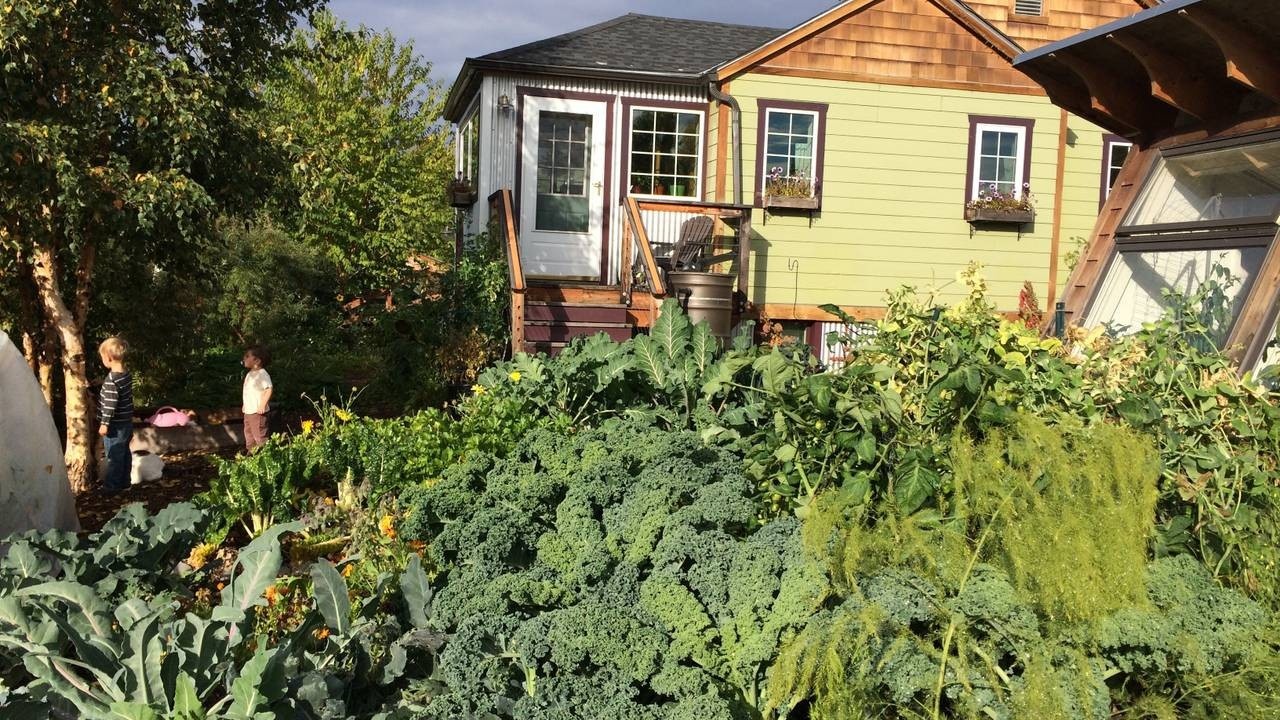Is Gardening a Privilege?

I hear it all the time... "but not everyone can garden!"
As if gardening is a leisure activity that only the wealthy people can afford.
The reality is that millions of people all over the world garden out of necessity.
Gardens and small family farms still feed over half of the population of the world.
Not so long ago, this was the only way to feed all but the very elite.
I, myself, rely on gardening to feed my kids healthy food. Just a few years ago when I was in the throes of a divorce and rebuilding my business, I took comfort in knowing that at least we wouldn't starve.
In fact, in many ways it was the gardening that got me through. When I was filled with anxiety about the future, or grief for my loss, the only thing that would bring me back was some weeding. A trip to the raspberry patch gave me strength to keep on.
Which is why I believe that gardening should be a right. We should all have access to a piece of land to grow something on.
Everywhere I have traveled outside of the US, I have seen people growing food in gardens.
In Cuba I saw vegetable gardens everywhere. Over 90% of fruits and vegetables consumed come from food gardens on just 3.4% of urban land. Havana alone has over 25,000 allotments, which produce food year-round using no chemical fertilizers or pesticides.
During my studies in Russia I passed miles and miles of dachas riding the trains out of St. Petersburg. Russians grow over 50% of their food on dachas, which comprise only 3% of the cultivated land in the country. Over 70% of Russians garden on dachas.
In Malawi I a friend told me about how much his family relied on the garden that his mother grew in their yard.
And even here in the US, we grew over 40% of our food in victory gardens during WWII.
We have the potential to grow vast amounts of food in our cities and towns.
Not just any food... fruits and vegetables, which provide much-needed nutrition to our malnourished population.
I'm not just talking about poor people. We ALL need this.
The soil of modern farms is stripped of nutrients, and our produce is actually less nutritious than it used to be.
Home gardens provide a buffer against rising oil and food prices, crop failures due to climate change, and transportation challenges.
Gardens can be a source of clean food free of pesticides and plastic contamination.
It's true that not everyone has a house with a yard that can be used to grow food.
Perhaps those of us that do ARE truly privileged.
With privilege comes responsibility.
Responsibility to actually garden, and perhaps pass on some of the food we grow to those who can't grow it themselves.
Responsibility to find ways to offer space to garden to those who need it the most. Community garden space can be made available in schools, church lawns, community centers, vacant lots, alleyways, public buildings, and businesses.
Responsibility to teach others how to actually grow food, which seems to be a lost skill.
What if instead of giving people processed sugar-laden food at food banks, we gave out vegetables and taught people how to cook them. Then we gave them land and taught them how to grow their own healthy food?
Do you consider gardening a privilege? How do you envision making it accessible to all?
